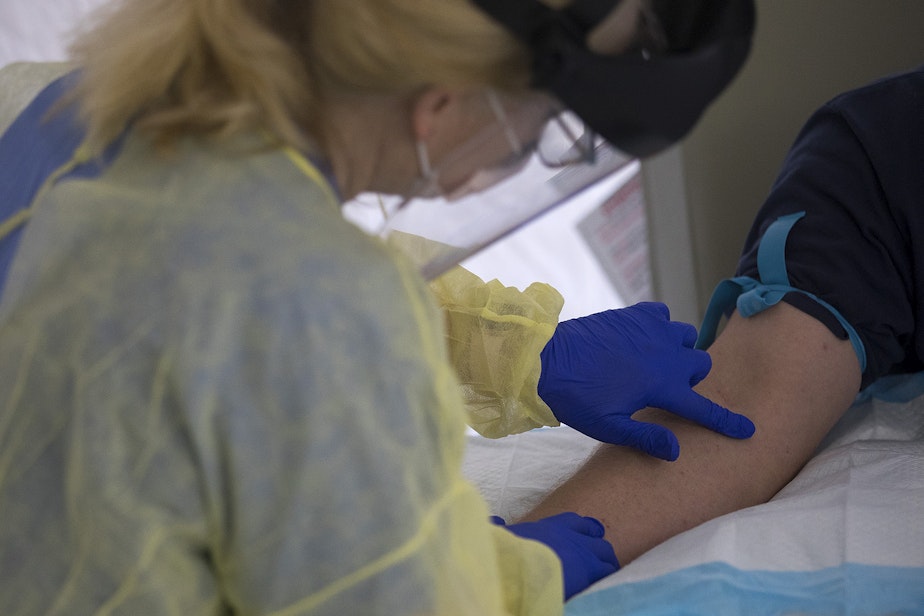How do you approach the moral dilemmas of the coronavirus pandemic?

How far would you go to help your neighbor during this pandemic? And who should make life and death decisions about limited medical supplies: Emotional human doctors or detached artificial intelligence?
Those are questions that are part of a new survey being conducted by a group of researchers at the University of Washington.
Katharina Reinecke is co-leader of the study and she spoke with KUOW’s Angela King about the study.
(If you’d like to take part, the study is here.)
Angela King: This survey was the brainchild of computer science and psychology researchers working together. What’s the goal of this effort?
Katharina Reinecke: We got together before this whole pandemic started. Our goal was to study artificial intelligence and how we can make artificial intelligence models. So when this pandemic started, we realized that there's so many moral dilemmas in this, anything from whether to comply with social distancing recommendations despite personal costs, whether to engage in hoarding or profiteering behavior, which patient to provide with a life-saving ventilator, and so on. And our goal here is really to see whether the coronavirus pandemic has an impact on society's models and culture and to see whether there cross-cultural differences.
Sponsored
King: Your team is made up of people from different countries, and you're getting survey responses from all over the world. So what regional differences have you been noticing?
Reinecke: Well, you know, I can't talk too much about this because obviously, we don't want to change the responses that we get to the survey. But we have definitely seen different responses already, depending on the country where people come from. It also depends on age, education level, political factors and so on.
King: So will you be able to see the changes over time?
Reinecke: That's actually one of our focuses here. We believe as time goes on, and countries enter these different stages of the pandemic -- sometimes you're still on the up curve, sometimes you're already past the peak, or you're already thinking about reopening -- we believe that this will strongly impact what model decisions they would make.
King: Without giving everything away, can you give us an idea of some of the questions you're asking?
Sponsored
Reinecke: One of the big questions that we're asking is: if you have masks at home, and we know that many of you have, how many would you be willing to give away, even though you're still trying to protect your own family, but you also know that health care workers need masks? You know, this is very, very classical moral conundrum here. Another question would be: how willing are you to save, enable and help someone out even though it might actually hurt you? And maybe, other neighbors would see it as violating the stay at home order.
King: What do you plan on doing with the results once the survey is finished?
Reinecke: The real big thing here is we're hoping that this could actually inform public policy and help countries make better decisions. We know that many of these decisions that we have in the coronavirus pandemic are very controversial, but there is often consensus in society about how a certain culture wants to treat this question and answer it. So we're hoping that we can shed some light on these differences and make that available to public policymakers and politicians and other people.




